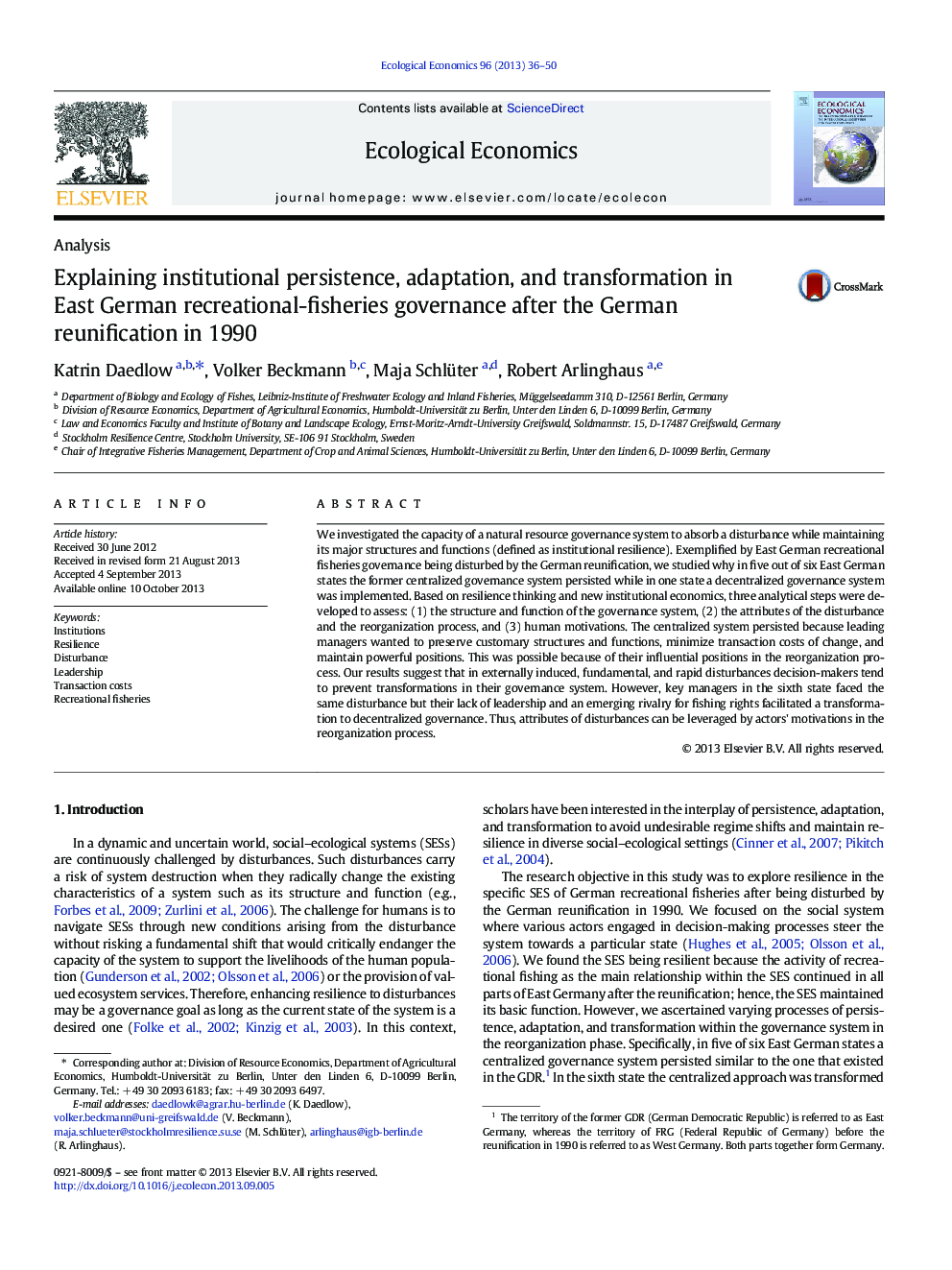| کد مقاله | کد نشریه | سال انتشار | مقاله انگلیسی | نسخه تمام متن |
|---|---|---|---|---|
| 5049912 | 1476383 | 2013 | 15 صفحه PDF | دانلود رایگان |
- Resilience and institutional economics mutually explain institutional persistence.
- In externally induced disturbances humans tend to preserve customary institutions.
- In externally induced disturbances humans tend to avoid transaction cost of change.
- Actors' leadership and positions trigger a particular outcome of reorganization.
- Attributes of disturbances can be leveraged by actors' motivations to transform.
We investigated the capacity of a natural resource governance system to absorb a disturbance while maintaining its major structures and functions (defined as institutional resilience). Exemplified by East German recreational fisheries governance being disturbed by the German reunification, we studied why in five out of six East German states the former centralized governance system persisted while in one state a decentralized governance system was implemented. Based on resilience thinking and new institutional economics, three analytical steps were developed to assess: (1) the structure and function of the governance system, (2) the attributes of the disturbance and the reorganization process, and (3) human motivations. The centralized system persisted because leading managers wanted to preserve customary structures and functions, minimize transaction costs of change, and maintain powerful positions. This was possible because of their influential positions in the reorganization process. Our results suggest that in externally induced, fundamental, and rapid disturbances decision-makers tend to prevent transformations in their governance system. However, key managers in the sixth state faced the same disturbance but their lack of leadership and an emerging rivalry for fishing rights facilitated a transformation to decentralized governance. Thus, attributes of disturbances can be leveraged by actors' motivations in the reorganization process.
Journal: Ecological Economics - Volume 96, December 2013, Pages 36-50
